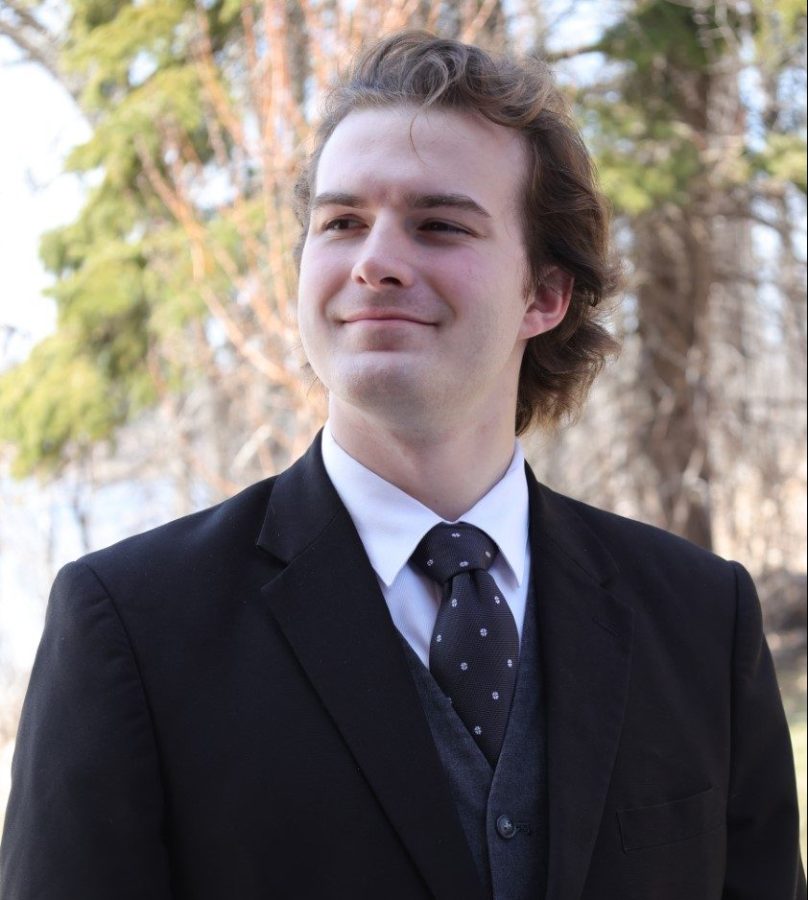22-year-old runs for WI governor
Up-and-comer provides refreshed point of view
October 26, 2022
A 22-year-old Wisconsin native is running for state governor as an independent write-in candidate hoping to bridge the age gap between politicians and their demographics.
Seth Haskin, who grew up in St. Croix Falls, is a senior majoring in neuroscience at Bethel University in Minnesota.
He said that he became interested in politics after seeing a tribal mentality develop in the wake of the COVID-19 pandemic, but he was convinced to run because of his age.
“We have a lot of politicians who are over 60 and getting close to the retirement age,” he said. “But a lot of those politicians may feel that they can’t retire because there isn’t a population underneath them that’s interested in politics.”
Haskin said that he aims to give people his age representation on a local level because their issues and priorities may not be represented by older politicians. He said that he believes this is one of his main appeals.
“In some sense, I do feel that I am representing the younger generations because you have to be 25 or older to represent a population on the federal level,” he said. “But we allow people to vote at 18, so we have a group of 18-to 25-year-olds who don’t have any representation on the federal level. There’s also very little representation for this age group on the local level.”
Haskin said that he was initially concerned about running for governor because he would be cast into the public eye. However, he said that he received a lot of excitement from his peers once he overcame that reaction.
“A lot of people excitedly agreed with me,” he said. “They say that we need a younger voice. A lot of my peers are super excited, and many of them didn’t know that you can run for governor at my age.”
Haskin also said that his lack of political experience doesn’t bar him from success, despite what some critics say.
“How much do you learn on the job compared to what you go in with?” he said. “I can get a job somewhere with no job experience and I’ll be trained on the job. After enough time, I know how to do my job and what’s expected of me.”
When it comes to hot-button political issues, Haskin said that much of his political philosophy emphasizes the importance of education. But he said that the social emphasis on college degrees has led to the student debt crisis.
He said that student debt relief is a difficult issue because his core values reflect personal responsibility; however, he said that there has been an unprecedented push for four-year degrees, which he said has increased student debt.
“It used to be the case that you either got a four-year degree or you got a minimum-wage job,” he said.
While he believes that student debt relief may be unfair, Haskin also said that it might be necessary.
“Is it fair for taxpayers to pay a certain part of student loans?” he said. “To that, I would say no, it’s not fair. Many have gone to college and have worked hard to pay off their debts. But should we pay for student loans nonetheless? I think we should offer help, but I don’t know if we should be paying off student loans.”
Haskin said that we need to de-emphasize the importance of four-year degrees, offer better access to financial help including financial education in high schools and provide more open and honest means of accessing financial help, such as ending predatory lending.
“In short: fairness? No,” he said. “Should we nonetheless? Not outright, necessarily.”
Haskin also said that education is important regarding abortion, specifically referencing the need for sex education and more childcare.
“We shouldn’t be following the 1800s law,” he said, referencing the 1849 Wisconsin law that criminalized abortion. “We have more technology and knowledge than they did in the 1800s.”
Haskin said that he views abortions as a practical matter, and as such, they shouldn’t be sought out for the sake of convenience alone.
“Rape and incest are probable causes for abortion in the first trimester,” he said. “But if the abortion is soley based on the convenience of not having the child, I would be wary. But we don’t have to put that into the law.”
Haskin said that he does not agree with any limitation within the first trimester, abortions should be made more difficult to obtain in the second and third trimesters.
“This is a very tough issue,” he said. “I would ask most people where their line in the sand is. There is no definite line. A lot of times, people put the line after the first trimester, and I would agree. If we were to put a law into place, [it would reflect the rulings of Roe v. Wade].”
Haskin made no comments about his future plans pending the outcome of the election, for which voting is on Nov. 8.















